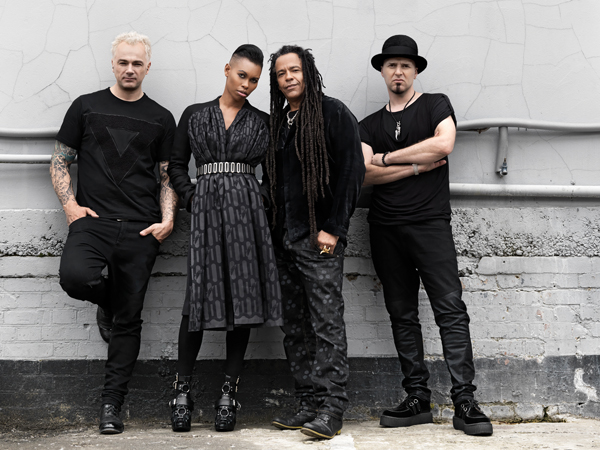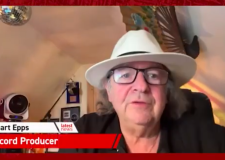Music: Skunk Anansie
Frontwoman Skin talks to Jeff Hemmings

Formed in 1994, disbanded in 2001 and then reformed in 2009, this four piece achieved a lot of success with several hit singles and albums to their credit, but are better known as an incendiary live band, winning several awards over the years for their live act.
So, what happened when they initially split? “I was doing a lot actually,” says Skin (born Deborah Dyer). “I’ve had two solo albums, sold about 500,000 between the two, and did bits of modeling and some other japanese stuff, and some deejaying, house music – electronic, in-yer-face… More like tech-house, minimal, deep house stuff, a little bit of electro.”
As for the split, Skin remains discreet about this period… “If you drag up old stories it makes the future worse; it’s a bit like that – people have been asking me that question for four years and it’s always the same answer… a short version would be to say the chemistry faded, we didn’t look after the band, and even though we didn’t lose our friendship we weren’t concentrating on making the band as good as it should be, and so we just stopped for a while, and when we thought we could do it properly again we got back together.
“It’s very intense, and incredibly tiring, and if anyone has any issues or problems, it becomes accentuated and becomes a big deal; and when you’re in a band you can get away with behaving like a child and not looking after people. I’m sure most bands have the same friggin’ issues, it’s so boring… Hindsight is wonderful, isn’t it? There were so many things I would have done differently.”
On reforming they released a Greatest Hits album which also included some new tracks. Since then they’ve released two more albums of original material, gaining new fans as well as re-engaging older ones, although Skin is somewhat dismissive of her country. “England is not very loyal… really fickle.. the grief that Adele gets nowadays make me laugh, because I’m like, ‘she couldn’t put a foot wrong’. She gets the success that everyone wants her to have and now she’s hated for it; she’s a bit too successful. It’s frustrating to see these people with great talents getting battered to pieces, and I think that’s what happened to us really quickly; we were like the kings of England, we sold 100,000 in a couple of months, and all of sudden everyone hated us.”
Strong words from a very strong lady, who once famously described Skunk Anansie’s music as ‘clitrock’. “I said that once as a laugh – and I carried it on, by putting it on a postcard and I took a picture with ‘clitrock’ across my forehead, and someone put it on a postcard and sold it in every shop in England without our permission! But, it was a joke really – someone said to me: ‘So, what does it feel like to not be a part of Britrock’ They hated us, and some people thought we were part of that movement, and we said: ‘no, we weren’t’ [part of the Britrock movement]. We weren’t allowed, we were tossed to the side. Remember, back in the ’90s it was all about scenes; there was this scene, and that scene, and Menswear, all the hype, and all these individual journalists creating these scenes.
It was b*****s, and everyone was like ‘f*** you’. I remember the hype over that UNKLE record was unbelievable, that was what it was like in the ’90s. So, we said: ‘well, actually we’re not Britrock, we’re clitrock, and we’re the only band in the scene and we’re going to be our own scene, and it was funny, and people took it seriously. And then some other bands started calling themselves clitrock, and then we disbanded it and said,‘the scene is over…’, you can all go home now. It was a just a bit of a laugh,” she says.
Concert Hall, Brighton Dome, Tuesday 26 March, 7pm, £24





















